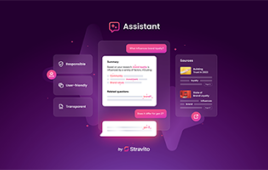Groundbreaking Coventry University research could provide paramedics with crucial and potentially life-saving assistance when treating pedestrians hurt in road accidents.
 A detailed database of pedestrian injuries is being developed alongside a mathematical model, which can reverse-engineer pedestrian collisions and produce first-hand virtual CT scans from simple photographs of a patient’s injuries and the vehicle involved.
A detailed database of pedestrian injuries is being developed alongside a mathematical model, which can reverse-engineer pedestrian collisions and produce first-hand virtual CT scans from simple photographs of a patient’s injuries and the vehicle involved.
These virtual CT scans of the body can inform paramedics, in seconds, about the victim’s potential internal injuries per organ, enabling the correct treatment at the scene. The information could also be sent to a hospital, thus speeding up the triage and improving the treatment of the casualty upon their arrival in accident and emergency units.
Dr. Christophe Bastien and colleagues at Coventry University’s research Centre for Future Transport and Cities are developing this Forensic Pedestrian Trauma Database (FPTD) in conjunction with University Hospitals Coventry and Warwickshire (UHCW) following funding support from The Road Safety Trust.
The research has been chosen as a winner of the Prince Michael International Road Safety Award which recognizes outstanding achievement and innovation in worldwide road safety improvement.
“The mathematical model, with the help of basic photography, essentially reverse-engineers pedestrian collisions, which through our framework can then provide paramedics with key information on potential injuries they usually would not have access to whilst responding to an incident on-scene. We’re optimistic about the potential of such crucial assistance to help paramedics save the lives and improve the treatment of pedestrians who have been involved in traffic collisions and incidents,” said Dr. Bastien, associate professor (Academic) at Coventry University’s Centre for Future Transport and Cities.
“In the long term, we’re very hopeful that we can develop our detailed framework into something that can be rolled out within the NHS and to health care services around the world.
“For me and the teams, winning the Prince Michael International Road Safety Award represents the crowning of decades of research, positioning Coventry University as a respected and highly credible transport safety research partner worldwide.
“Our next step is to secure funding to continue the development of the FPTD. Our research brings huge interest from hospitals, ambulance services, transport forensics and the police.”
Gary Gilkes has worked in the ambulance service for the last ten years as a paramedic as well as lecturing at universities across the country. He’s attended multiple serious incidents and works to help implement new ideas within the NHS and the ambulance service.
“Pedestrian trauma injuries can be very emotional and human factors can slow down the process of triage, so having a way to speed up this process and minimize these human factors would undoubtedly improve patient outcomes and save lives.
“It’s unquestionable that speed in terms of the speed of getting patients into hospitals and starting treatment saves lives – the quicker we can do that the better chance the patient has.
“There’s no doubt in my mind that this research and this framework will certainly improve the speed in which clinicians can triage injury patterns to be able to update hospitals so they can prepare treatment packages and we can start early interventions treatment on scene so these injuries don’t cause life-changing scenarios or conditions.”
“The findings from the research that Coventry University has conducted have the potential to assist the UK Police Force and Accident and Emergency departments with road traffic collision insight. As a charity dedicated to achieving zero road deaths and serious injuries on UK roads through our grants, we are excited by the fact that this research can help save lives in the future,” said Sally Lines, CEO of The Road Safety Trust.
The virtual CT scans have been developed and validated using the Total Human Model for Safety (THUMS) which has been devised by the Toyota Motor Corporation and Toyota Central R&D Labs.





Tell Us What You Think!